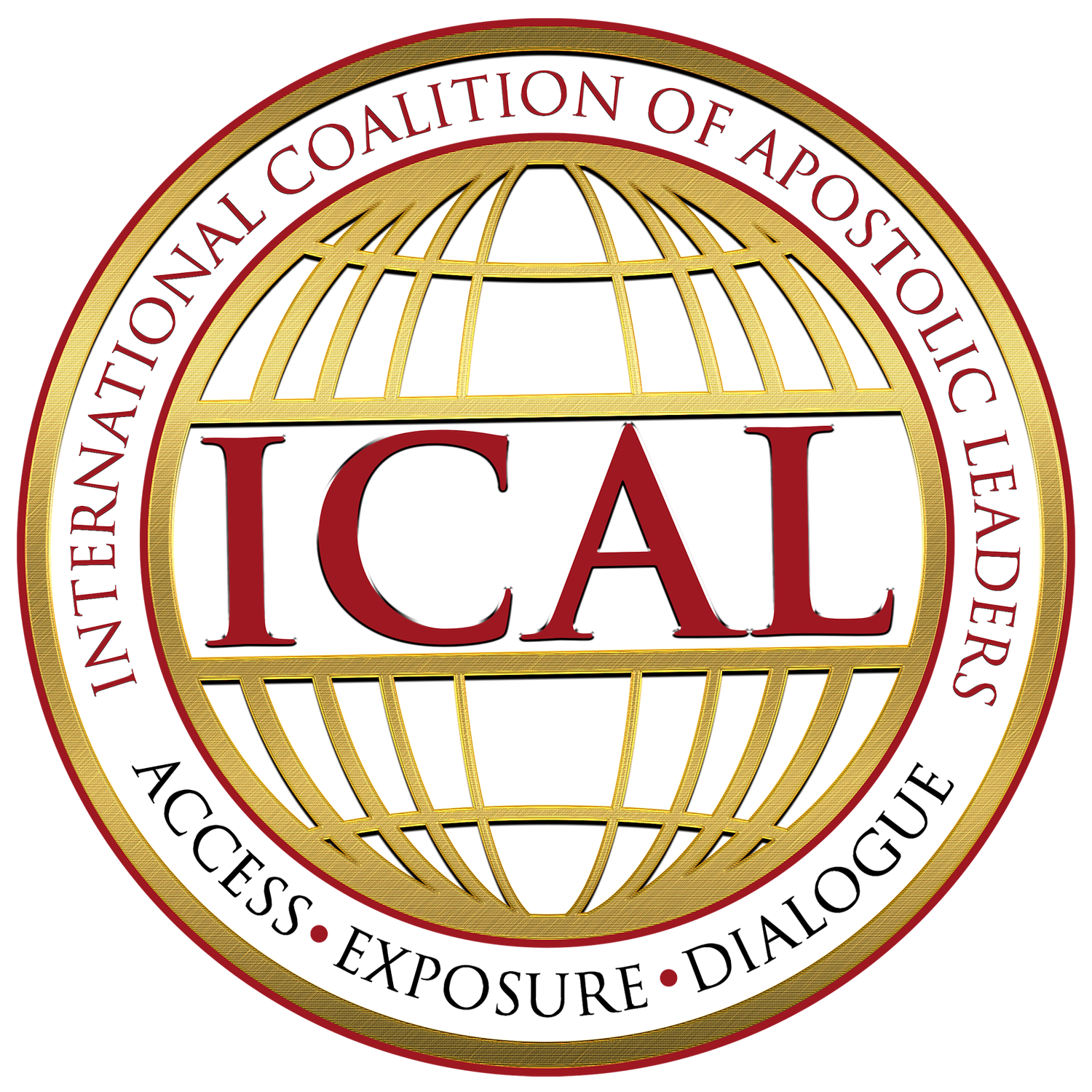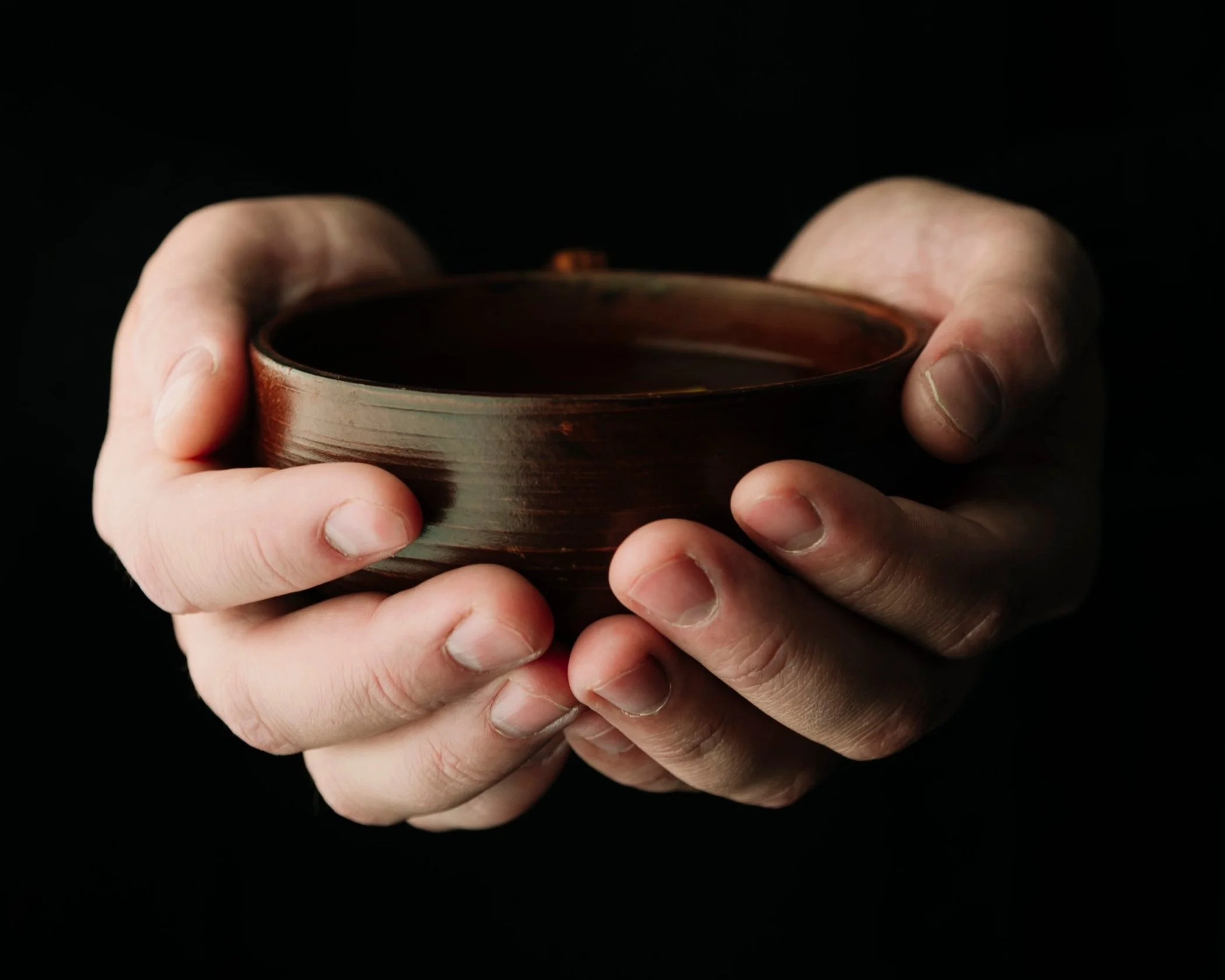How to Change the Past by Mark and Nicki Pfeifer
/People say you can’t change the past – but I disagree.
You can change the past by redefining it.
Jesus did this the night he was betrayed. He knew who was betraying Him when He dipped bread into a cup and offered to Judas (Mark 14:17-19).
This was the Cup of Betrayal.
Later, Jesus prayed three times, “Abba, Father, all things are possible for You. Take this cup away from Me…”
No one wants to drink from the bitter Cup of Betrayal. No one wants to be sold out, stabbed in the back, and abandoned by all your friends.
Yet this is exactly what happened to Jesus.
But then, He prayed, “Nevertheless, not what I will, but what You will (Matthew 26:42).”
Notice what Jesus did.
He surrendered to the will of the Father.
He drank the cup!
The Cup of Betrayal became the Cup of Surrender!
“Though He was a Son, yet He learned obedience by the things which He suffered.”
Hebrews 5:8
If we want to change the past, we must do the same. We must redefine the past through a lens of surrender to the will of God. By laying down our lives, we see the past differently. It changes our perspective.
It’s not easy - but it is necessary. When we surrender, we can start redefining the pain of our past by praying something like Jesus did.
We might say, “God, I don’t like this, and I don’t want this. But it’s not about me. My life belongs to you. Do with it what you want. If my pain is necessary to mature me and if it can be used to help other people - I’m in!”
Jesus drank the Cup of Surrender for us!
And then something even deeper happened…
When Peter finally woke up and tried to defend Jesus with a sword, Christ said to him, “Put your sword into the sheath. Shall I not drink the cup which My Father has given Me (John 18:11)?”
Did you get that!
Look again!!
The Cup of Betrayal became the Cup of My Father!
Christ’s surrender to the plan of God totally redefined the nature of the cup he was drinking!
The Cup of Betrayal becomes the Cup of My Father by drinking the Cup of Surrender!
When this happens to us, we discover the Father’s plan in the midst of betrayal. We see the past from a different point of view – one of sweet surrender.
And we redefine it.
We reinterpret it.
And it changes.
It becomes the Cup of Our Father.
But only if we are willing to drink the Cup of Surrender, first!
At this point, you may be wondering about your situation, “Did God cause these events?”
The answer is NO! God did not cause Judas to do what he did. God did not cause the disciples to fall asleep and Peter to ultimately deny Him.
No, God did not cause the pain – but He did use it!
Peter made this point clear in his sermon on the Day of Pentecost when he said to the Jewish leaders, “Him, being delivered by the determined purpose and foreknowledge of God, you have taken by lawless hands, have crucified, and put to death (Acts 2:23).”
Peter claims that the Jews were guilty of crucifying Jesus. They did so willfully and wrongfully. Yet their actions were used by God as part of God’s predetermined plan to redeem mankind.
God does not have to cause something to happen in order to use it for His glory and our good!
Joseph in the Old Testament said something similar when he confronted his brothers who sold him into slavery. “But as for you, you meant evil against me; but God meant it for good, in order to bring it about as it is this day, to save many people alive (Genesis 50:20).”
Notice again that God didn’t cause it – but He used it!
Memories are an interpretation of the past. We normally associate them with negative or positive emotions. If we have been victimized by some senseless act of violence or experienced tragedy and loss of some kind, our minds have a difficult time processing the pain. It often leaves us hurt, confused, bitter, frustrated, and resentful.
These conclusions and the emotions they create will continue to haunt us until we are able to reinterpret past events and redefine them from a different perspective.
Redefining a memory begins with realigning the objectives of our lives. When we radically commit to doing the will of God like Jesus did and our top priority becomes helping other people no matter the cost, we start to see the value of our past pain in its ability to mature us and help others in similar situations.
When spiritual development and helping other people find Christ becomes a higher priority than my own wellbeing, seeing how God can use my past pain to help other people becomes attainable.
My past is changed by redefining it!
Imagine you’ve planned a surprise birthday party for a friend. Your job is to keep them busy and distracted all day while other friends prepare the house. You keep making excuses to occupy time and draw out the day as long as possible. Your friend gets irritated and by the time you are headed home, they are in no mood to talk!
When you walk through the door of their house and everyone yells, “Surprise!,” suddenly your friend’s attitude changes. Everything makes sense now. In an instance, they reinterpret the past 6 hours and the frustration melts into gratitude.
This is the power of redefining the past!
But, in order to do this, our lives must be fully surrendered to the will of God and our desire to be spiritually mature and help other people must be greater than our inner need for self-preservation.
By redefining the past, we change the association of our memories from something negative to something positive.
What both Jesus and Joseph were able to do by redefining past events in light of how God used them to help others, grew out of a value system that emerged from their commitment to the Father’s plan.
Here are three key values that we must align to do the same.
I. WE MUST VALUE GOD’S WILL OVER OUR WILL
Jesus turned the Cup of Betrayal into the Cup of His Father by an absolute surrender to the will of God. He prayed in the Garden of Gethsemane saying, “Nevertheless, not what I will, but what You will (Matthew 26:42).”
We used to call this being “sold out” to God. It described a determination every Christian must have to lay down their lives to the will of God, no matter the cost.
This is what motivates missionaries to sell everything and move to remote places around the world to help others. It was the foundation upon which men like John Wesley, George Muller and William Carey built their lives and ministries.
This is also what gave the martyrs the courage to face certain death while giving praise to God.
“Nevertheless, not what I will, but what You will.”
II. WE MUST VALUE EDUCATION OVER COMFORT
All education costs you something. Tuition demands a payment. Sometimes it’s in the form of money and sometimes it’s in the form of personal pain.
But it always costs you something!
If we value education over personal comfort, we are more willing to pay the price for it. In fact, whatever we value in life makes it worth the cost. Whether it’s a car, a home, a boat, a vacation, shoes, clothing, dinner at a nice restaurant, gym memberships, ect., the cost is justified by a person’s value system.
Values have a tendency to sort themselves out into some sort of hierarchy. We value some things over others. If a person values personal growth and education over creature comforts, they are more likely to define tough times positively, especially when they see how God uses those events to help others.
Failures, setbacks, betrayals, rejections, losses, humiliations and other such painful events are redefined as learning experiences.
Nelson Mandela is credited with saying, “I never lose. I either win or I learn.”
Thomas Edison described his unsuccessful attempts as creating a lightbulb this way, ““I have not failed. I've successfully found 10,000 ways that won't work.”
No, you wouldn’t want to go through the pain again. The agony was real. But you can get to the place where the lessons you learn are so valuable that your mind disassociates the memories of those events from the pain you experienced and realigns them with something you highly value – education.
III. WE MUST VALUE MINISTRY OVER SELF-SERVITUDE
It’s easy for leaders like me to say that we are called to serve others when, in reality, we’re often working to advance our own careers.
I’m not saying you can’t do both! But what I am saying is that it’s very difficult, if not impossible, to accurately evaluate our own inner motives.
This is where God helps us!
When we experience setbacks, betrayals, failures, discouragements, and the like, it gives us a chance to step back and self-evaluate. It’s a time to reflect and realign our priorities. This is much harder when we are riding a wave of success and momentum.
There is no time for such introspection.
When washing the feet of others becomes a higher priority than becoming a Christian celebrity, we can finally move beyond the pain of past betrayals and see them as steppingstones in our journey towards Christlikeness. We can clearly see the people who have truly been helped by our honesty and authenticity as we share these painful chapters in our lives.
When winning souls and making disciples becomes more important to us than creating social media followers and making fans, we will not be as frustrated with the size of our ministries and be more content with the sheep God has entrusted to our care.
Ministry means laying down our lives for the sake of others. This was the Cup of Surrender we accepted long ago when we answered the call to preach.
But, over time, it’s easy to use the world’s value system to evaluate our success instead of using the teaching and examples in scripture.
When spiritual growth takes precedence over self-promotion and helping others in their journey becomes more important than becoming famous, the struggles and hardships in life take a whole new shape.
They become opportunities that we can use to grow personally and help others in their journeys.
Our past gets redefined.
And it changes.
The Cup of Betrayal becomes the Cup of My Father when we willingly drink from the Cup of Surrender.
© 2024 Mark and Nicki Pfeifer




